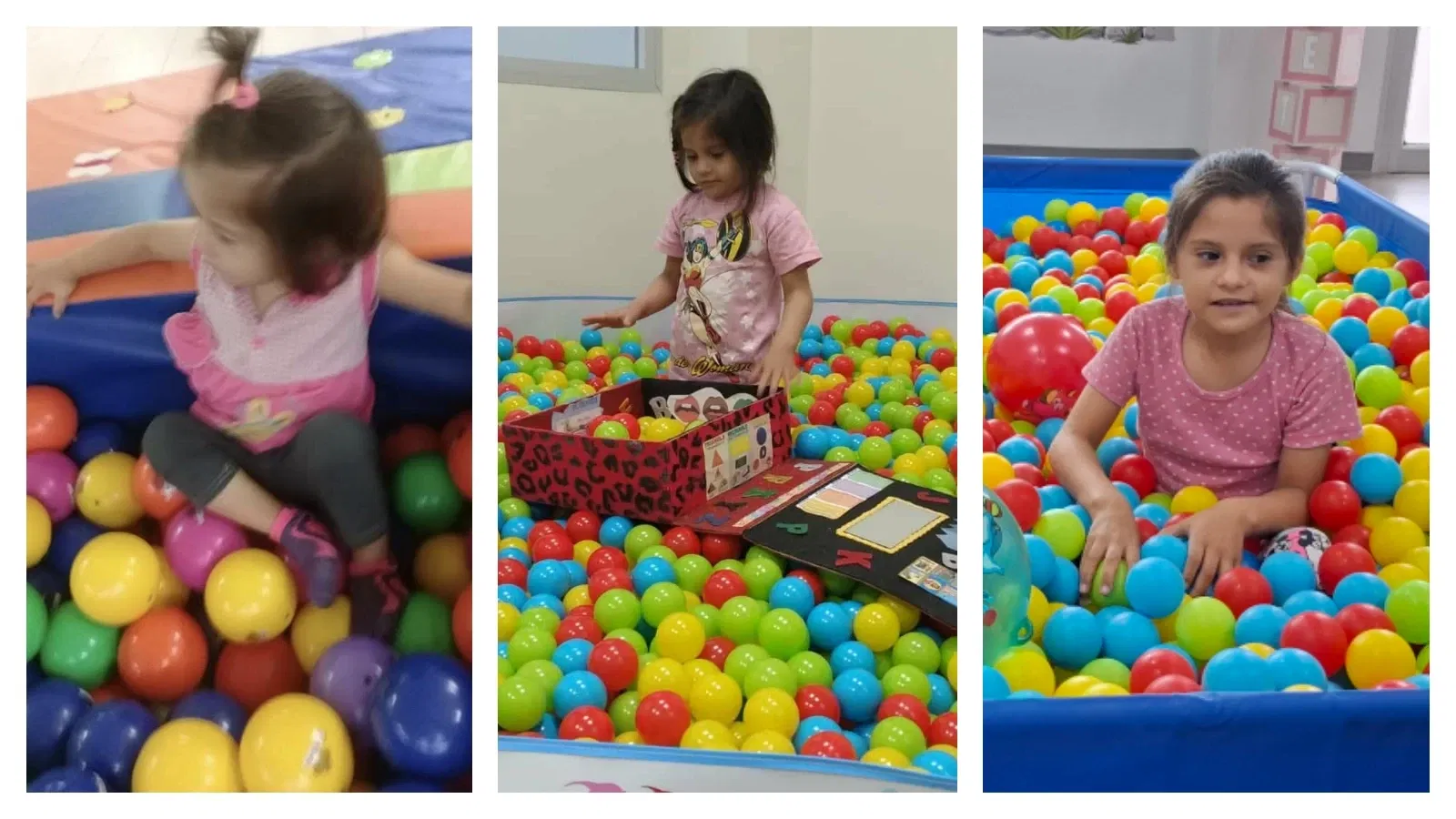
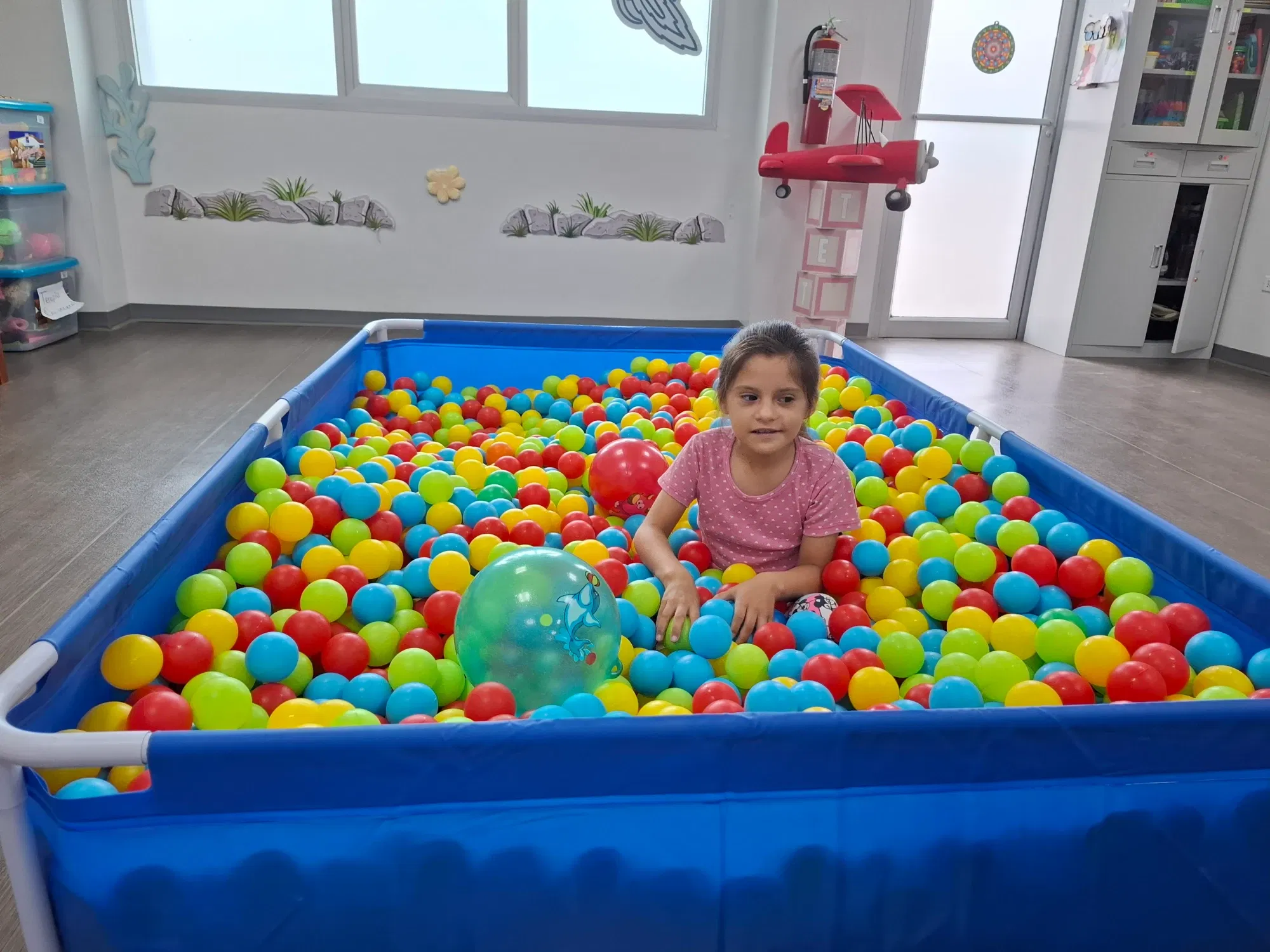
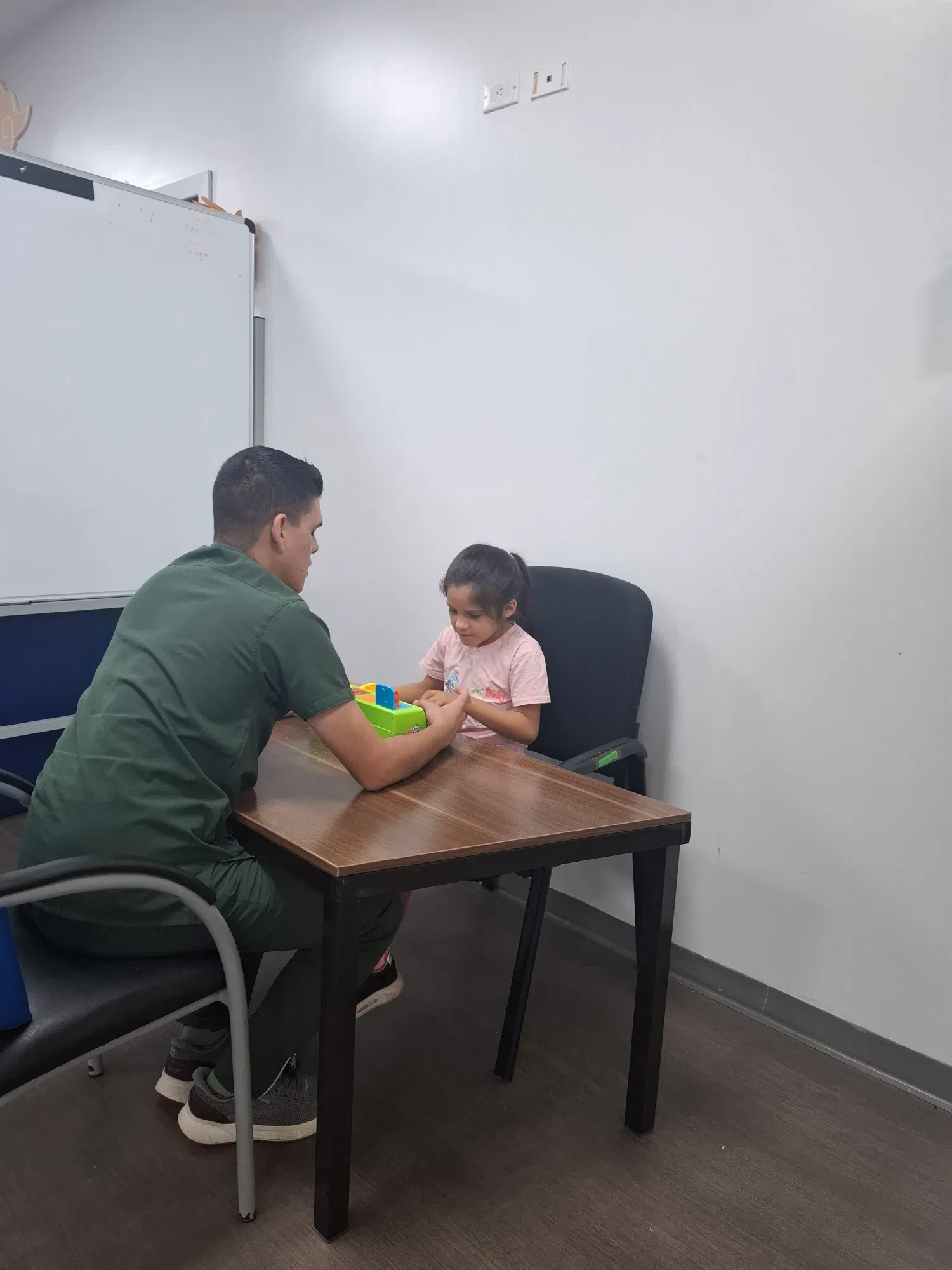
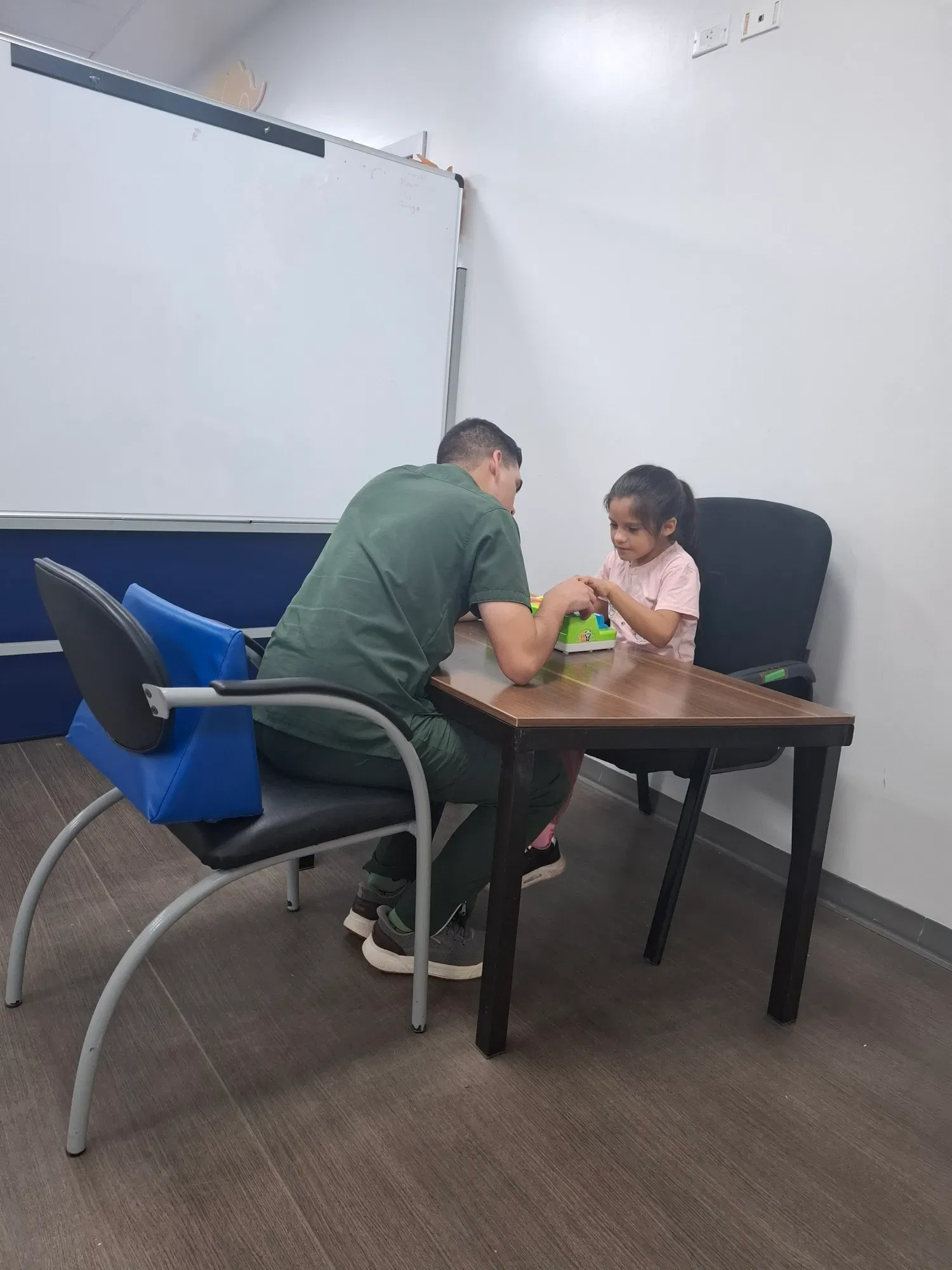
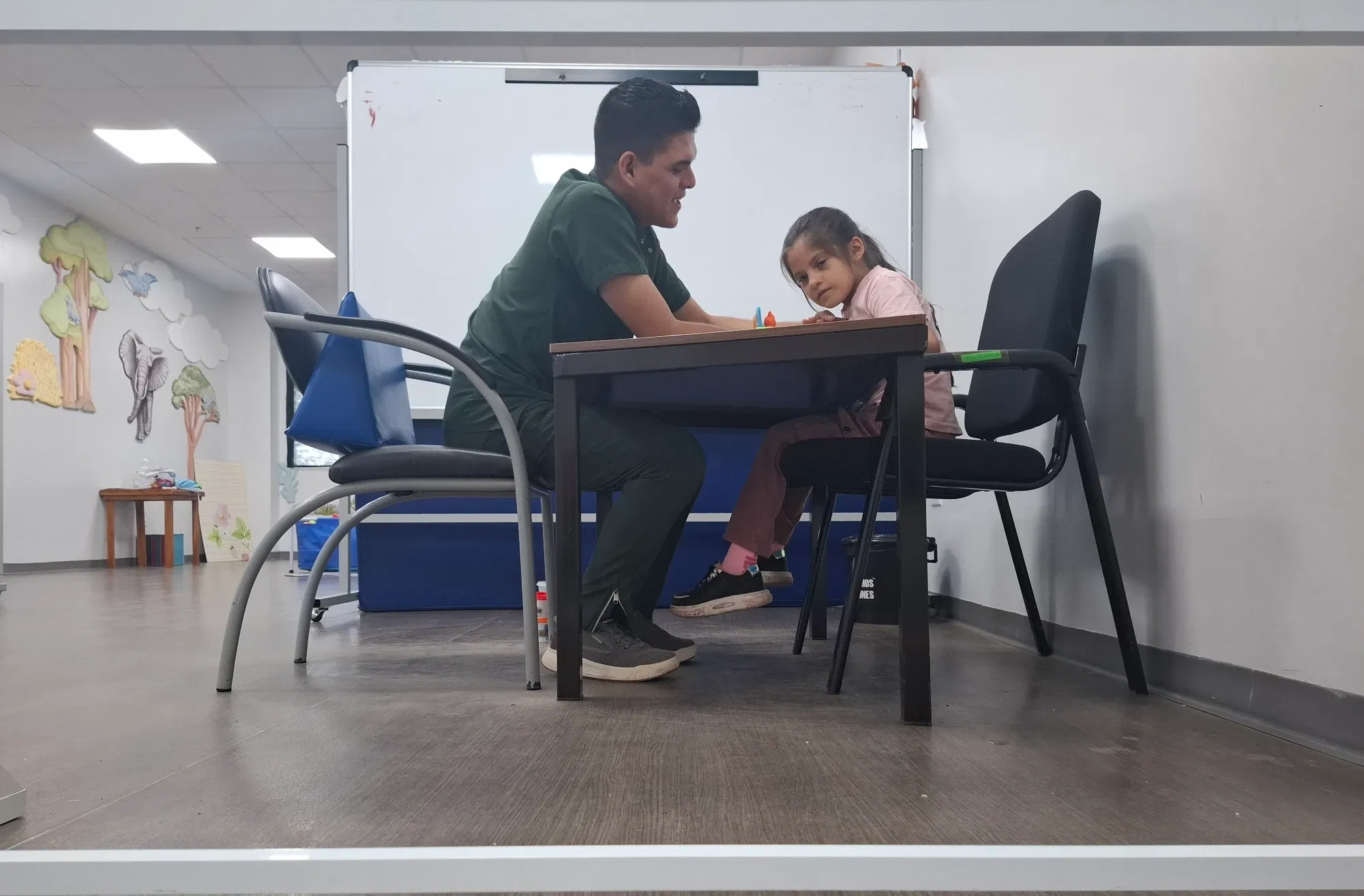
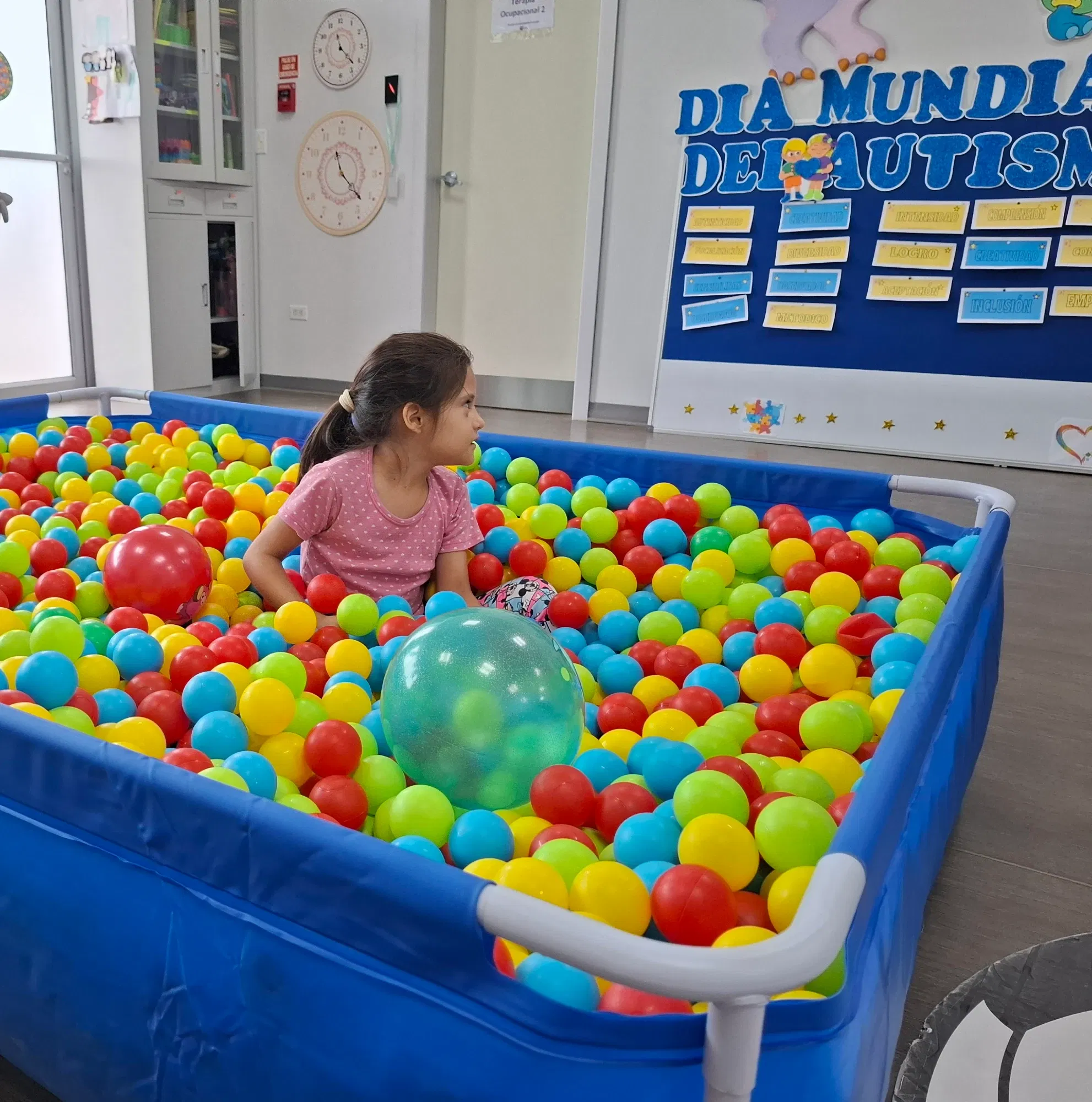
Amelie, regresó a terpaia Ocupacional en el Hospital de Especialidades y sí, esto es un entra, sal y regresa, así son los ciclos allí, por la demanda de pacientes y el poco espacio. Pero sin duda en estos casi 5 años que tenemos en ese proceso, ha sido de gran provecho para ella y eso es algo que podemos notar los especialistas que la han tratado y yo, pero en el especial el Licenciado Freddy, su terapeuta.
Hace dos semanas o un poco menos, Amelie inicio este nuevo ciclo, su terapeuta tenía más de 6 meses sin verla, podríamos decir que casi un año y notó muchas cosas, entre ello su crecimiento, también su madurez y avance. Y es que el trabajo en casa importa y aporta, también el hecho de que Amelie estuviera recibiendo terapias en otros centros, aunque actualmente solo está con el hospital por temas económicos. Pero recordamos aquellas primeras terapias, cuando Amelie ponía en marcha su síndrome de fuga y salía corriendo de la sala de Rehabilitación. Entre tantas cosas que recordamos, otra fue la piscina de pelota, y como cambiaron la piscina y ya estaba en uso, El licenciado le prometió a Amelie entrar si hacía la actividad y ella la realizó super rápido, dando a notar que entiende.
Aproveché a tomar alguna fotografias en la piscina para hacer ese collage del recuerdo. Y realmente Amelie ha cambiado muchísimo. No solo por la piscina de pelota, en sus actividades, ya las realiza y si alguna no quiere o la hace mal para terminar rápido, vuelve a repetirla cuando el licenciado le habla y explica que debe hacerla poco a poco o completa. Ella ahora se sienta sola a recibir su terapia, antes había que agarrarla entre las piernas y hacer mucha fuerza con ella. También espera y se sienta hasta una hora, sin entrar en una crisis.
El autismo, no tiene cura, porque NO es una enfermedad. Amelie vive con autismo siempre, pero siempre digo esa frase de que "un diagnóstico, no es un pronóstico" y es que con terapias, paciencia, amor y esfuerzo, sé que ella seguirá logrando mucho. Por ahora la meta es saber qué le gusta hacer y que habilidades tienes. Es algo que nos hemos propuesto como padres, investigar en ella, para seguirla apoyando en su desarrollo y lograr que sea una persona independiente.
>![English Version]
>
>Occupational Therapy – Progress and Growth
>
>Amelie returned to Occupational Therapy at the Specialty Hospital and yes, it's a cycle of coming, going, and returning – that's how things work there due to the high demand of patients and limited space. But without a doubt, in the almost five years we’ve been on this journey, it has been very beneficial for her. That’s something both the specialists who have worked with her and I can see – especially her therapist, Licenciado Freddy.
>
>About two weeks ago, or a little less, Amelie began this new cycle. Her therapist hadn’t seen her for over six months, almost a year, and he noticed many things – her growth, maturity, and progress. That’s because the work done at home truly matters and makes a difference. Also, Amelie had been receiving therapy at other centers, although now she's only attending the hospital due to financial reasons. We remember those early therapy sessions when Amelie would activate her “flight mode” and run out of the Rehabilitation Room. Among many memories, we also recalled the ball pit. Since they had changed it and it was already in use, her therapist promised Amelie she could go in if she completed the activity. She did it very quickly, clearly showing that she understood.
>
>I took the opportunity to snap a few pictures in the ball pit to create a memory collage. And truthfully, Amelie has changed so much. Not just in the ball pit, but in her activities – she now completes them. If there’s one she doesn’t want to do or rushes through, she’s willing to repeat it when the therapist explains that it should be done slowly or completed entirely. Now she sits by herself to receive therapy, whereas before, we had to hold her between our legs and use a lot of strength. She even waits and sits for up to an hour without having a meltdown.
>
>Autism has no cure because it’s NOT a disease. Amelie will always live with autism, but I always say that “a diagnosis is not a prognosis.” With therapy, patience, love, and effort, I know she will continue achieving so much. Right now, our goal is to discover what she enjoys and what skills she has. That’s something we’ve committed to as parents – to explore with her, to continue supporting her development, and to help her become an independent person.

For the best experience view this post on Liketu